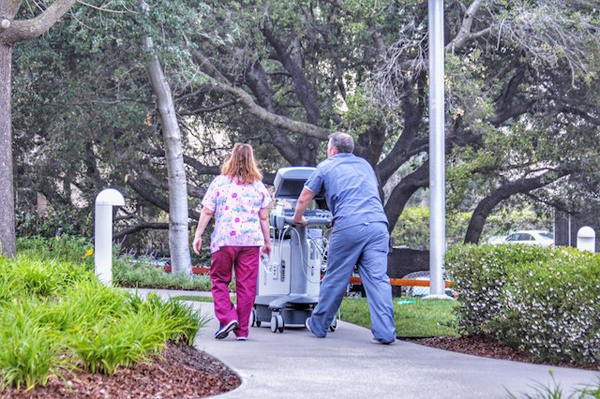- La Feria Community Holds Succesful Business Mixer Event
- Little Nashville to Take Place in Downtown Mercedes
- Lions Basketball Captures District Gold
- La Feria ISD Students Compete in Regional Chess Tournament
- Lions End First Half of 32-4A on a High Note
- La Feria ISD Held Another Successful Parent Conference
- Strong Appearance for Lions at Hidalgo Power Meet
- LFECHS Students Get to Meet Local Actress
- Students Participate in Marine Biology Camp
- Two LFECHS Students Qualify for All-State Band
Unlike TX, Uninsured Rates See Major Drop in Medicaid Expansion States
- Updated: October 5, 2018
by Eric Tegethoff
AUSTIN, Texas – States that have expanded their Medicaid programs have seen a drop of more than three times in the number of uninsured rural residents, compared to states like Texas that opted not to expand coverage, according to a new report from the Georgetown University Center for Children and Families.
Patrick Bresette, executive director of the Children’s Defense Fund in Texas, sees this report as a wake-up call.
He says his organization is able to sign up rural Texas children for health insurance through federal programs like the Children’s Health Insurance Program, but not their parents.
“You’re dealing with families who have very little in the way of an infrastructure around them to access care,” he points out. “In some urban areas, there may be more hospitals that they can access. There are free clinics, and we see people who have to drive miles and miles, just to get the kind of basic services that they need.”
Prior to the Affordable Care Act in 2009, the uninsured rate for Texans in rural areas and small towns was 40 percent. In 2016, it was 36 percent – still among the highest in the nation, and lagging far behind metro areas of Texas, with a 29 percent rate.
In neighboring New Mexico, which expanded Medicaid in 2013, the uninsured rate has dropped from 46 percent to 21 percent.
Study co-author Joan Alker, executive director of Georgetown University Center for Children and Families, says expanding coverage to more residents of rural areas that already struggle with higher rates of unemployment and poverty makes economic sense.
“When there’s a real option here on the table to take these Medicaid dollars, really, it’s a wiser use of taxpayer dollars to provide them with the primary preventive care that comes with having health insurance up front, so they don’t get sicker and wind up in the emergency room,” Alker points out.
Bresette notes that rural hospitals are economic drivers and sometimes, the single largest employers in those communities. He adds that Texas leads the nation in the number of rural hospital closures.
“You do see the ripple effect, because then you don’t have pharmacies nearby that are getting as much business. You don’t have all the kind of ancillary health support systems that gather around a hospital when it’s working,” he states. “So, it’s definitely a multiplier and every time you lose one, you’re hollowing out part of that rural community.”
According to the report, 25 percent of those without coverage also are parents. Numerous studies have shown children’s well-being improves when their parents have health insurance.



